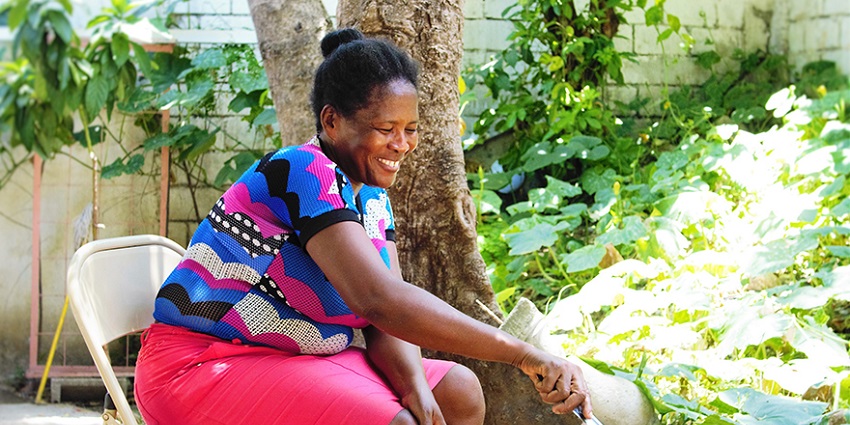[Interview] Palmis Enèji: for clean and accessible energy in Haiti
Interview with Jean-Farreau Guerrier, Coordinator, Entrepreneurs du Monde Haiti

©Nicolas David
Access to clean energy is essential to meeting the needs of populations, particularly in rural and isolated areas. In Haiti, the social enterprise Palmis Enèji, in which the Foundation is a shareholder, provides a solution with ecological and economical cooking and lighting equipment. Coordinated by the NGO Entrepreneurs du Monde, the project continues to expand. It notably benefited from a Solidarity Bankers mission through the Foundation in anticipation of an upcoming fundraising round.
– Tell us about Palmis Enèji. How is it a social enterprise adapted to Haiti?
Jean-Farreau Guerrier, Coordinator: Palmis Enèji is a Haitian social enterprise specializing in the distribution and maintenance of clean cooking and lighting equipment for the most disadvantaged households in Haiti. In our country, the situation is critical and requires action. Already among the poorest in the world, Haiti is experiencing a crisis that is severely affecting its population. Street protests are frequent, the security situation is deteriorating, and some areas are completely inaccessible. Affected by inflation of nearly 20%, households are losing purchasing power. 62% of them remain without access to electricity, and up to 85% in rural areas. As a result, families rely on candles or kerosene for lighting and charcoal for cooking. With its solar stoves and lamps, Palmis Enèji offers solutions to replace these rudimentary methods.
– What are the socio-economic impacts of your actions?
Through partnerships with microfinance institutions, Palmis Enèji offers financing solutions that facilitate the acquisition of equipment. Many households and professionals are thus converting to LPG gas cooking, which is much less harmful than cooking with charcoal. The poorest families living in rural areas have almost no access to LPG, so they use our improved charcoal stoves, which consume 20% to 30% less than traditional stoves. Our solar lamps also provide them with light, a healthier and more comfortable lighting than candles. These solutions allow the poorest families to save money while reducing their ecological footprint: we estimate that we have contributed to saving more than 153,000 tons of forest wood and reducing harmful CO2 emissions by more than 203,000 tons. Finally, Palmis Enèji supports economic activity with a network of franchised microenterprises. The words of one of our resellers testify to the social utility: “I am proud to see the light shining in our families.”
– What future developments do you envisage?
We are pursuing the strong objective of making our health- and environmentally-friendly equipment accessible to everyone, in every village. To achieve this, we are prioritizing three areas: access to LPG through distribution centers in the center of the country and in the Grande-Anse department; developing after-sales service; and diversifying our product range.
___________________________________________________________
Source : 2019 Integrated Report, Grameen Crédit Agricole Foundation. Download here



Leave a Reply
Want to join the discussion?Feel free to contribute!